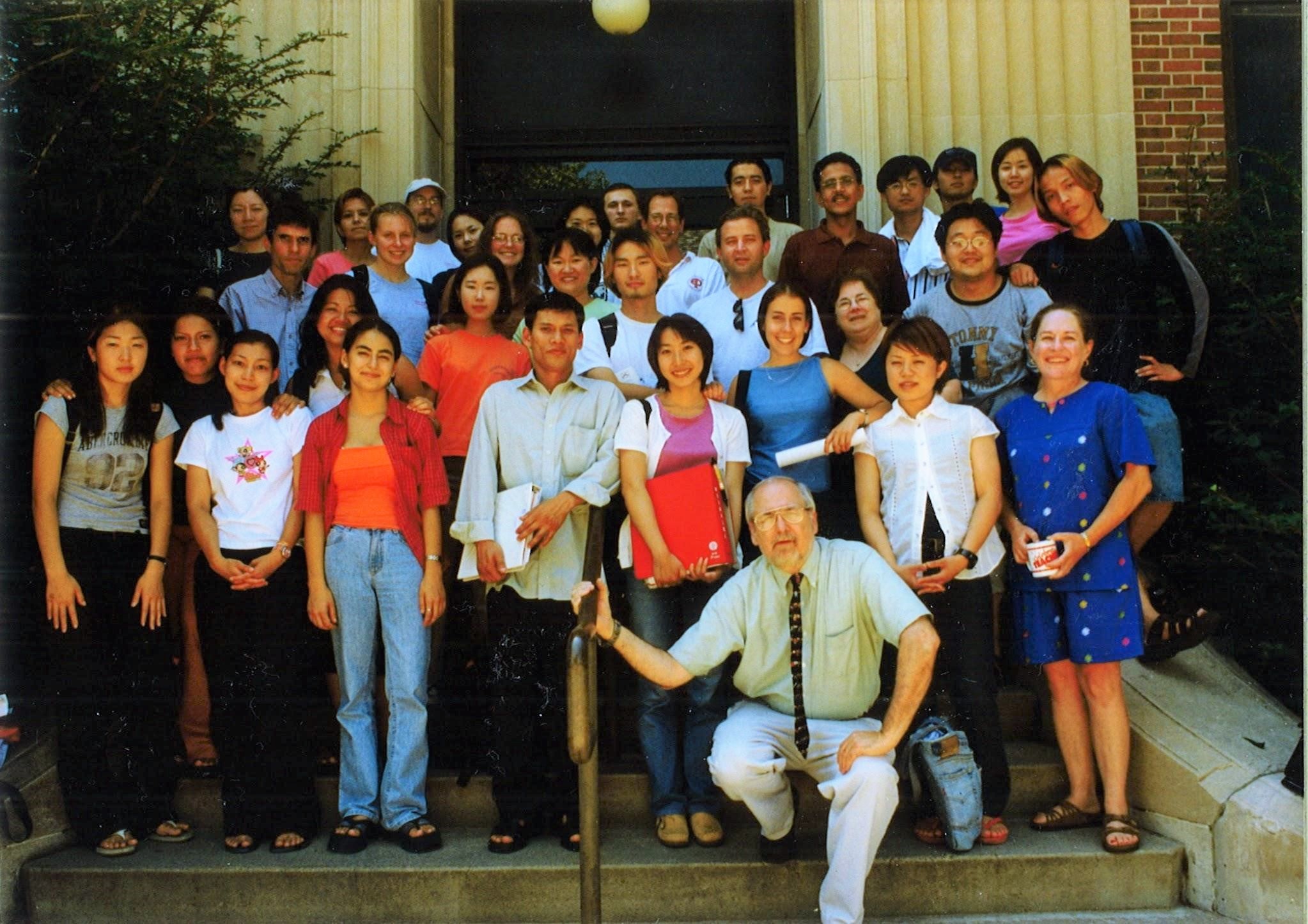
by Juliee Crocker | Programs in English as a Second Language
From a one-faculty department established in 1960, to a full-fledged unit that offers innovative English language instruction for non-native speakers and customized short-term programs, UNL’s Programs in English as a Second Language (PIESL) has a rich history to celebrate in its 60th anniversary this year.
Origins in English
In the summer of 1960, Professor Olga Stepanek in the English Department was tapped to lead the brand new Department of English as a Foreign Language. The Department was originally housed in Andrews Hall along with the rest of the Department of English. Originally a freshman English professor, Stepanek received training at the University of Michigan that summer to prepare for the first class of 49 students enrolled in the department. During her courses, Stepanek taught colloquial English and focused on improving the speaking skills of her students.
Throughout the 1970s, the program continued to grow and add new positions to provide expanded support for students. By the time Stepanek retired in 1975, the Department also included a writing center and a linguist professor. By the 1980s, a new range of “Credit English as a Second Language” classes launched specifically tailored to meet the English language needs of international students.
Entering a New Millennium
In the 2000s as the Department for English as a Foreign Language outgrew its space in Andrews Hall and moved into Nebraska Hall, a new need was discovered. Originally dubbed the Advanced for Credit Intensive English Program (AFCIEP), the program provided a bridge for international students in the Intensive English Program preparing to enter for full academic admission. Now known as the Credit English for Academic Purposes (CEAP) program, international students enrolled in these courses receive university credit as they work through their final intensive English classes and being academic coursework.
A new phase for PIESL began in 2013. More space for office and classroom use was secured in Nebraska Hall and technology upgrades and other renovations began in the fall. At the same time, PIESL revised its English language programs to give students an innovative, hands-on approach to language learning. At the start of the 2014 spring semester, a new English language test was adopted to place students in appropriate classes and the Intensive English Program switched from 8-week mini-terms to a full semester program.
Launching a New, Innovative Curriculum
The mission of PIESL is not only to encourage English language proficiency through its rigorous and innovative curriculum, but to also build an inclusive learning environment that allows students to adjust to U.S. culture and prepare for the workplace. The exciting curriculum updates launched in 2013-14 also allowed upper-level students to take focused intensive English courses that incorporated major-related vocabulary and industry-specific site visits. For example, PIESL lecturers regularly take “English for Business” students to visit the university’s College of Business and local startups like Hudl, founded by UNL alumni and now a global company that offers performance analysis tools for coaches and athletes. Students in the “Science and Engineering” class often meet at the Nebraska Innovation Studio to gain real-world experience in designing and producing projects.
Many PIESL courses also highlight the local community and allow students to build connections at the university and in Lincoln. The “Campus and Community Engagement” course, for example, organizes community-building activities on and off-campus for students to build a connection with their home away from home, like volunteering at the Food Bank.
PIESL lecturers also coordinate with faculty peers across campus to give students early exposure to UNL academic courses and encourage both international and domestic students to expand their perspectives. For example, graduate professor Dr. Theresa Catalano (Department of Teaching, Learning, and Teacher Education - TLTE) and PIESL lecturers Crystal Bock Thiessen and Tim Meadows recently paired their students together to explore intercultural communication. During a two-hour workshop on February 10, PIESL students practiced their English with the graduate students while applied course concepts on intercultural communication. Together, workshop attendees discussed stories of migration from Dr. Catalano’s Talking About Global Migration book and learned how to map emotions and abstract concepts using dances.
Going Beyond the Classroom
Beyond the classroom, PIESL coordinates several programs that help support the university’s international initiatives with customized programming fit for the needs of campus and global partners. In addition to the Intensive English Program, CEAP and Credit English as a Second Language for undergraduate and graduate students, PIESL also offers multiple short-term programs during the summer session.
For more than 25 years, students from Senshu University Matsudo High School in Tokyo, Japan have visited UNL for two weeks in the summer for an intensive English study and cultural immersion. Last summer, PIESL hosted students from Hyogo University High School, also in Japan, for a similar program. Beginning in summer 2020, Nebraska will also partner with college students from Kobe University in Japan for a more technical English language and cultural program related to their studies.
Additionally, PIESL has hosted the Fulbright English for Graduate Studies Program for the last two summers in 2018 and 2019. The month-long program serves as an orientation for incoming Fulbright students from around the world to adjust to the U.S. higher education system before they leave to their assigned institutions. Other programs PIESL lecturers have designed specialized programs for include a teaching exchange for Pakistani educators and culture classes for visiting Argentine students.
In reflecting on the depth of PIESL’s 60-year history, the program has experienced several achievements and milestones to transform into the innovative unit it is today. With the continued dedication of its lecturers and staff, PIESL’s mission remains the same even after 60 years: to serve as a gateway between international students and the university.
Learn more about the PIESL office and its programs at piesl.unl.edu.